Best Foot Forward: Spruce Up Your Sidewalk
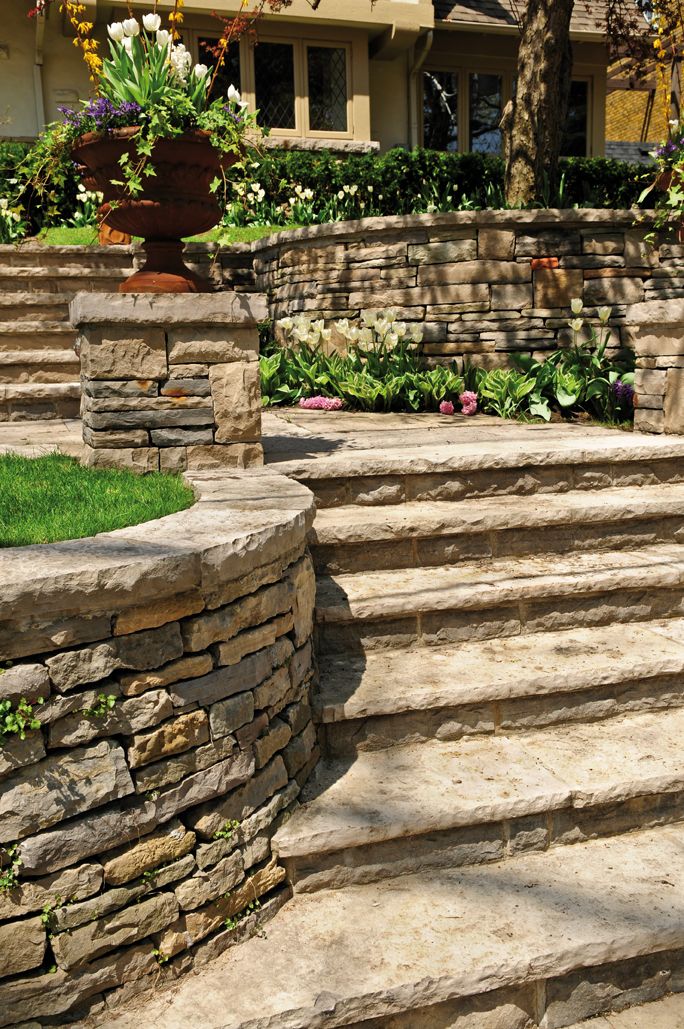
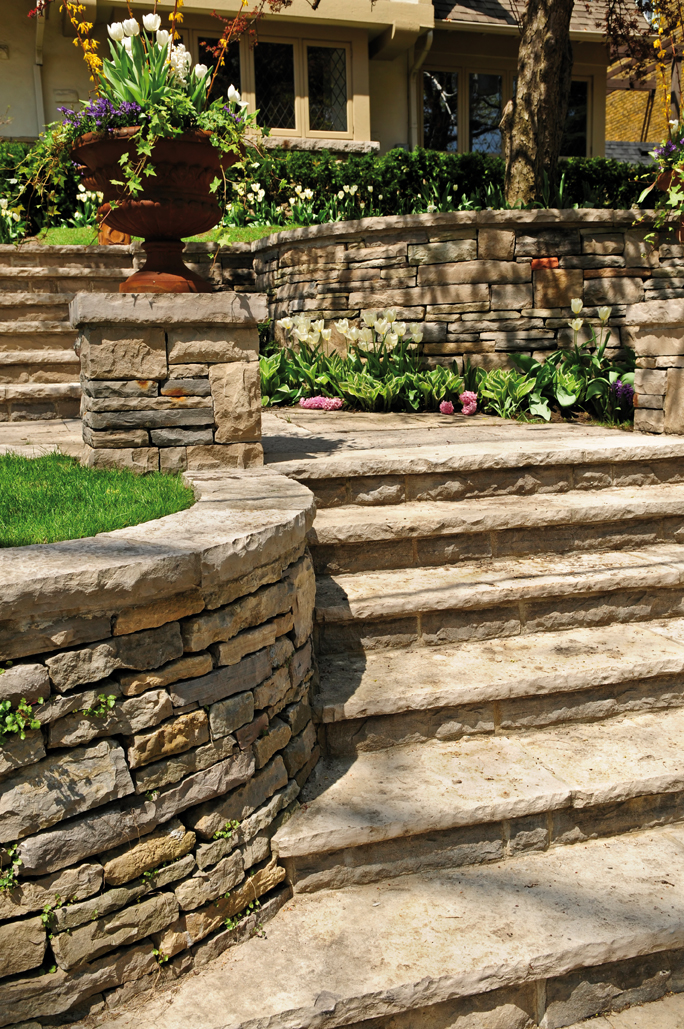 Metaphorically, the walkway leading to the front door of your home is an invitation to ring that doorbell. If you’d like it to be more enticing then get in touch with Driveway and Walkway Contractor in Glen Burnie MD.
Metaphorically, the walkway leading to the front door of your home is an invitation to ring that doorbell. If you’d like it to be more enticing then get in touch with Driveway and Walkway Contractor in Glen Burnie MD.
Metaphysically, the ribbon of concrete, masonry or gravel provides propriety to a front yard that would merely be a postage–stamp sized prairie without it.
Metatarsically-speaking, it is always in everyone’s best interest to keep your walkways in fine shape for whatever foot may tread upon them.
Walkways come in all shapes and sizes but there are at least a couple of commonalities that most everyone can agree upon. First, there is usually a door at one end and not the other. Second, walkways should be easy to navigate and not pose a danger to pets, small children or UPS drivers.
After another winter of wear and tear on the house, lawn and walkways, it is inspection time for your Yellow Brick Road. Take a careful walk and look for any issues that may have cropped up during the winter. The problems will differ depending on the materials in your sidewalk.
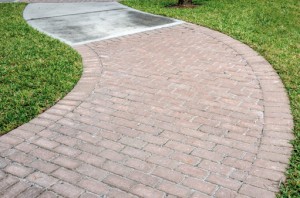 Some general issues to look for include wobbly pavers, slates or blocks; cracks and general crumbling; and spring growth trying to worm its way into any opening, no matter how small.
Some general issues to look for include wobbly pavers, slates or blocks; cracks and general crumbling; and spring growth trying to worm its way into any opening, no matter how small.
Pavers, concrete and plain old gravel all have their peccadilloes, but if something just doesn’t look right, or if you stubbed your toe on a chunk of sidewalk, there is the option of calling a local concrete repair contractor who specializes in residential concrete work.
According to Fixr.com, the going rate to fix a cement walkway is around $9 per square foot. If the job is simply a repair (patching cracks), home.costhelper.com indicates the job should run from $50-$200. However, local rates may differ, and doing your own repairs can be the most cost-effective.
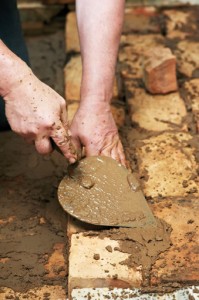 Loose stones and pavers are common after Virginia’s wintertime freeze/thaw cycles. Water gets under the walkway, expands during a freeze and makes things move. The fix can be as simple as lifting the paver and re-leveling the base sand or as complicated as lifting the damaged flagstone, cleaning the area, and using adhesive to reset the wayward slab.
Loose stones and pavers are common after Virginia’s wintertime freeze/thaw cycles. Water gets under the walkway, expands during a freeze and makes things move. The fix can be as simple as lifting the paver and re-leveling the base sand or as complicated as lifting the damaged flagstone, cleaning the area, and using adhesive to reset the wayward slab.
If you have grouted stone walkways and the grout is showing its age or crumbling, you can chip out the old crumbling mortar and re-grout with a sand-topping mortar mix for added strength. The repairs are only moderately complicated and can be accomplished in about two days. If you need a concrete removal service, visit https://concretecuttingadelaide.com.au/.
Not all walkway damage is weather-related. Often grass or weeds can grow between the best grouted pavers or creep into nooks and crannies of a walkway. One school of thought fancies the English garden look of moss-covered pavers, so a little greenery may not present a problem. However if you like your grass only on the edge of your walkway, the weed war awaits. Vigilant garden tending keeps your walkway attractive and weed-free.
Walkways, or any outdoor elements with cracks and crevices, accumulate organic material that allows weed to root and grow. Simply re-grouting between bricks, pavers or stones will not resolve the issue permanently. For a more permanent fix, consider options like exposed aggregate driveways, which offer a durable and low-maintenance solution that minimizes weed growth and enhances the aesthetic appeal of your outdoor space.
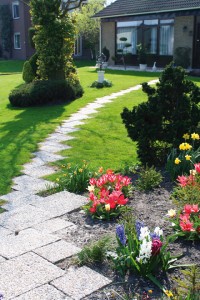 Forums on gardenweb.com suggest treating between stones with a mixture of water and vinegar or salt water. Go easy on the salt, though, because it can leach into the soil and affect some plants to which you bear no ill will. Boiling water mixed with a capful or so of bleach can also kill what persistent little flora takes a hankering to live in your walkway.
Forums on gardenweb.com suggest treating between stones with a mixture of water and vinegar or salt water. Go easy on the salt, though, because it can leach into the soil and affect some plants to which you bear no ill will. Boiling water mixed with a capful or so of bleach can also kill what persistent little flora takes a hankering to live in your walkway.
Dozens of commercially available weed killers are also effective on walkway weeds. The caveat is that they can stray onto nearby flowers and ornamentals and wreak havoc.
Walkways are also susceptible to varieties of creeping crud in the form of molds and moss. The fix for each is a little different.
Mold can be attacked with diluted chlorine bleach. The trick is getting and keeping the diluted bleach only on those areas affected by the mold. A wire brush will come in handy to get the mold off your walkway after treatment. In addition, keep in mind bleach can be harmful to animals and can discolor whatever it touches.
Moss calls for a different strategy. Most sources indicate that the surest, safest fix for moss is to get physical with it. Scrape the moss off any part of your walkway and be prepared to revisit the battleground regularly.
Akin to any other outdoor structure, walkways require repetitive maintenance. Mother Nature is hard at work every day giving the walkway another issue to overcome. It just needs a little help to survive and prosper.






